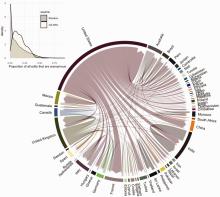UNESCO World Heritage sites are places of outstanding significance and often key sources of information that influence how people interact with the past today. The process of inscription on the UNESCO list is complicated and intersects with political and commercial controversies. But how well are these controversies known to the public? Wikipedia pages on these sites offer a unique dataset for insights into public understanding of heritage controversies. The unique technicity of Wikipedia, with its bot ecosystem and editing mechanics, shapes how knowledge about cultural heritage is constructed and how controversies are negotiated and communicated. In this article, we investigate the patterns of production, consumption, and spatial and temporal distributions of Wikipedia pages for World Heritage cultural sites. We find that Wikipedia provides a distinctive context for investigating how people experience and relate to the past in the present. The agency of participants is highly constrained, but distinctive, behind-the-scenes expressions of cultural heritage activism are evident. Concerns about state-like actors, violence and destruction, deal-making, etc. in the World Heritage inscription process are present, but rare on Wikipedia’s World Heritage pages. Instead, hyper-local and process issues dominate controversies on Wikipedia. We describe how this kind of research, drawing on Big Data and data science methods, contributes to digital heritage studies and also reveals its limitations.
World Heritage sites on Wikipedia: Cultural heritage activism in a context of constrained agency
Marwick, B., & Smith, P. (2021). World Heritage sites on Wikipedia: Cultural heritage activism in a context of constrained agency. Big Data & Society, 8(1), 20539517211017304. https://doi.org/10.1177/20539517211017304
View PDF
(2.12 MB)
